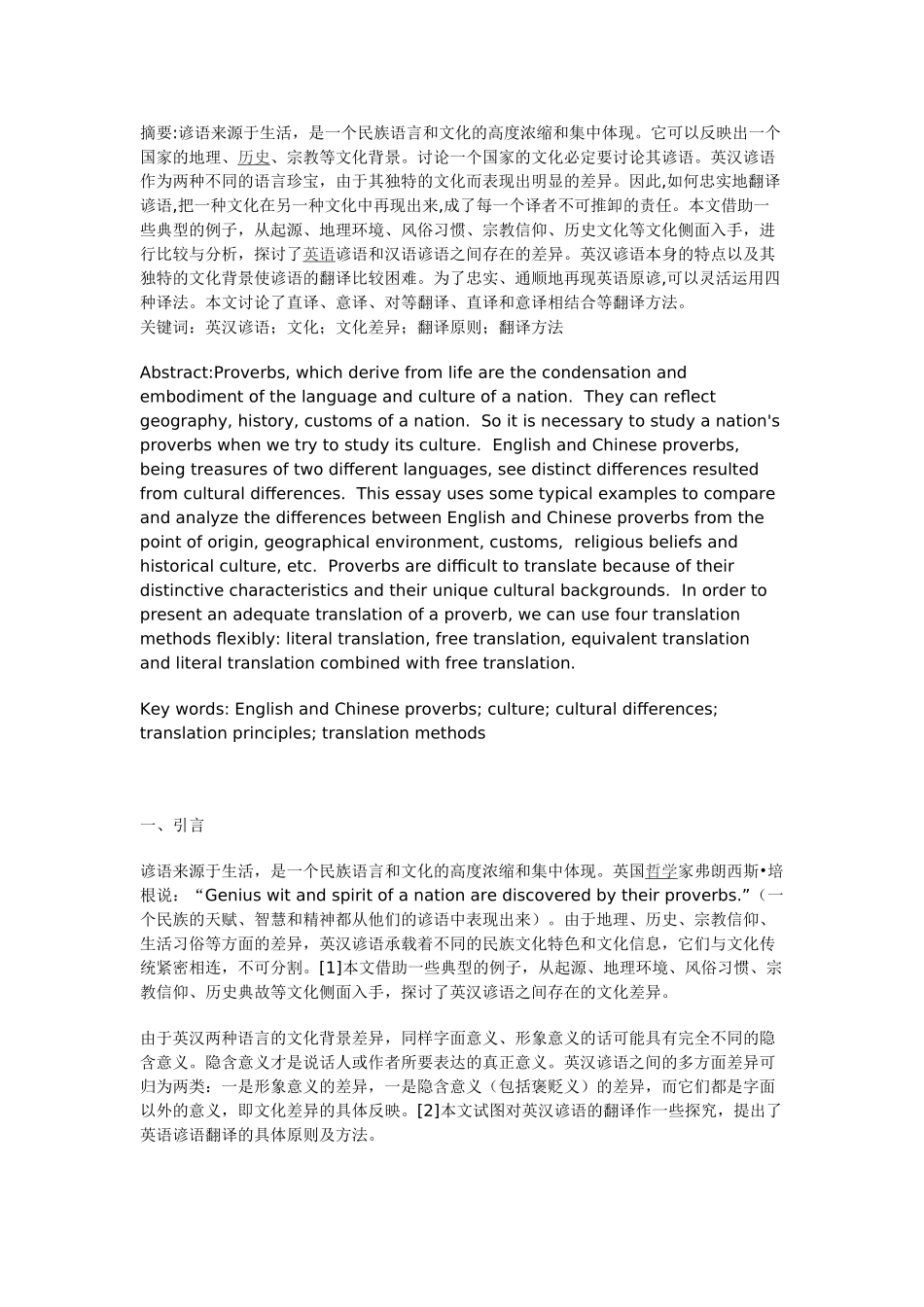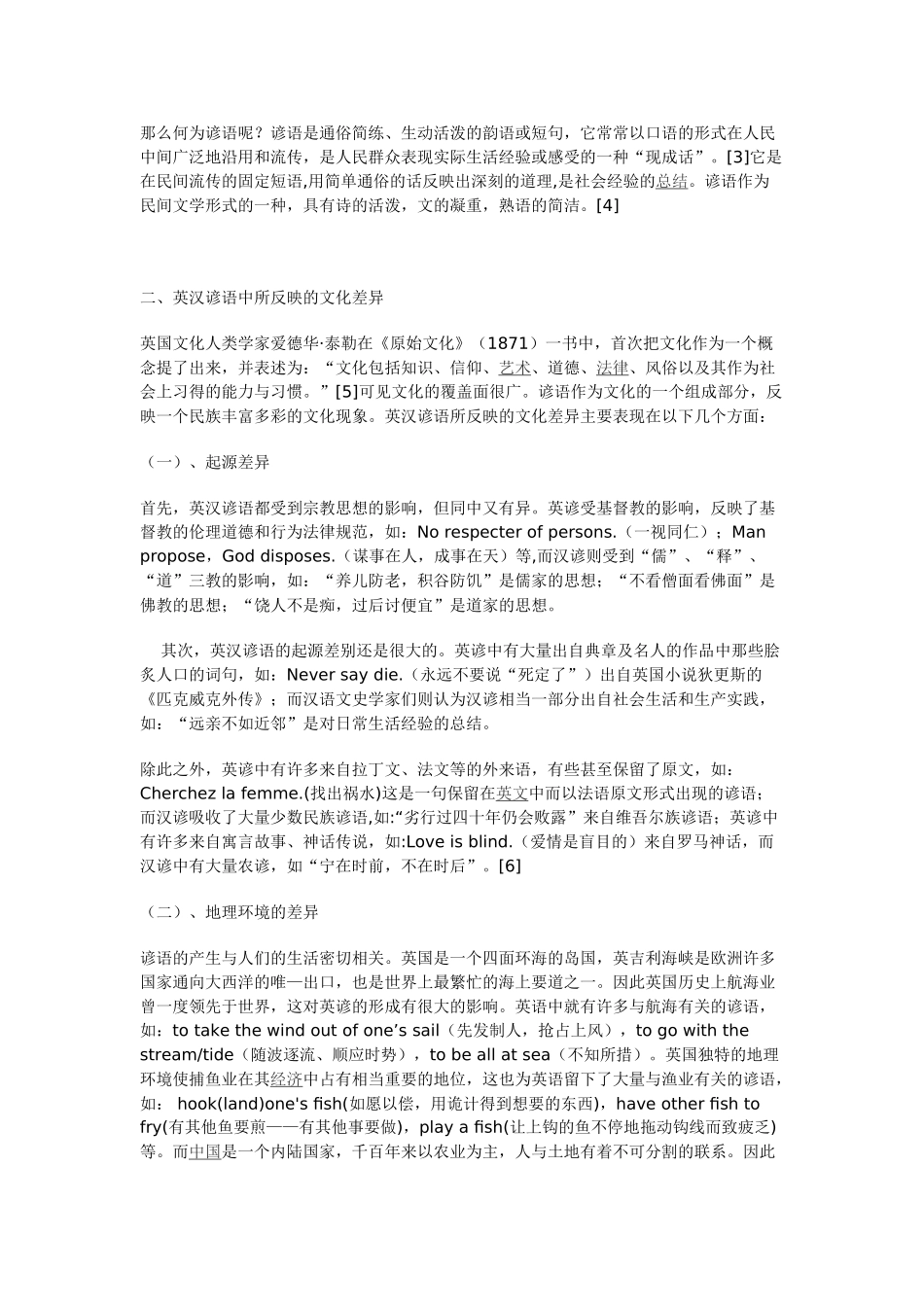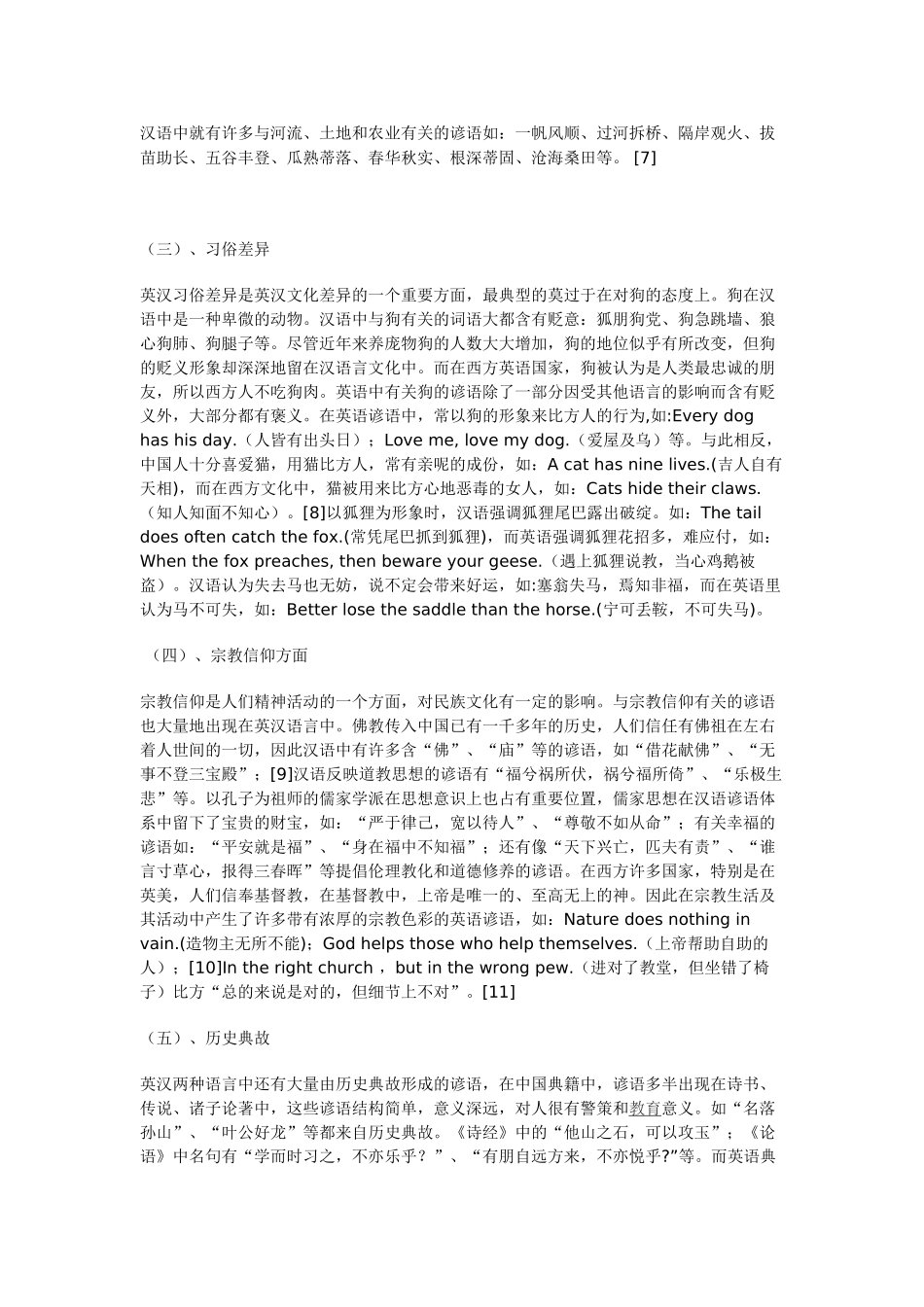摘要:谚语来源于生活,是一个民族语言和文化的高度浓缩和集中体现。它可以反映出一个国家的地理、历史、宗教等文化背景。讨论一个国家的文化必定要讨论其谚语。英汉谚语作为两种不同的语言珍宝,由于其独特的文化而表现出明显的差异。因此,如何忠实地翻译谚语,把一种文化在另一种文化中再现出来,成了每一个译者不可推卸的责任。本文借助一些典型的例子,从起源、地理环境、风俗习惯、宗教信仰、历史文化等文化侧面入手,进行比较与分析,探讨了英语谚语和汉语谚语之间存在的差异。英汉谚语本身的特点以及其独特的文化背景使谚语的翻译比较困难。为了忠实、通顺地再现英语原谚,可以灵活运用四种译法。本文讨论了直译、意译、对等翻译、直译和意译相结合等翻译方法。关键词:英汉谚语;文化;文化差异;翻译原则;翻译方法 Abstract:Proverbs, which derive from life are the condensation and embodiment of the language and culture of a nation. They can reflect geography, history, customs of a nation. So it is necessary to study a nation's proverbs when we try to study its culture. English and Chinese proverbs, being treasures of two different languages, see distinct differences resulted from cultural differences. This essay uses some typical examples to compare and analyze the differences between English and Chinese proverbs from the point of origin, geographical environment, customs, religious beliefs and historical culture, etc. Proverbs are difficult to translate because of their distinctive characteristics and their unique cultural backgrounds. In order to present an adequate translation of a proverb, we can use four translation methods flexibly: literal translation, free translation, equivalent translation and literal translation combined with free translation.Key words: English and Chinese proverbs; culture; cultural differences; translation principles; translation methods 一、引言谚语来源于生活,是一个民族语言和文化的高度浓缩和集中体现。英国哲学家弗朗西斯•培根说:“Genius w...


